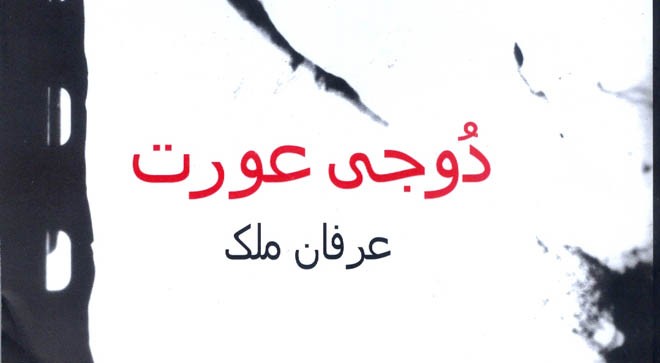
The poems in Dooji Aurat show a range of emotions -- from melancholic to erotic, from profane to maternal to even morbid to suffocating

Lee Chang-dong’s award winning film Poetry explores how loss of memory, society, and poetry are deeply interlinked. To counter Alzheimer’s, a grandmother enrolls in a poetry class to explore beauty. Later, she is offended when a younger poet, a policeman by profession, lubricates his verses with vulgarity. As the younger poet arrives, towards the climax, to arrest the woman’s grandson for having raped a fellow female student (now dead) with friends, poetry’s failure to incorporate the ugly reality corresponds to a nation’s collective amnesia. This is generally achieved by self-censorship -- a fate that befell Ikramullah’s novella Gurg-e Shab banned by Zia ul Haq for nudity and obscenity.
But there’s a fate far worse when the literary establishment does not acknowledge a work’s existence because it’s too abrasive to the bourgeois or Puritan sensibilities. That’s partly why Irfan Malik’s latest pastiche Dooji Aurat is important to modern Punjabi literature other than its obvious literary merit.
A poet lives in perpetual exile and the poems in Dooji Aurat exhibit that through the shifting of mood and colour, register and tone, ebb and flow. Like other major poets, his poems show a range of emotions -- from melancholic to erotic, from profane to maternal to even morbid to suffocating. One of my favourites, Ik si Maryam hides a universe of pain and longing in just a few lines.
اک واری
جد اوہ میرے بہت کولوں دی لنگھی
تے میرا دل چاھیا
میں اوہنوں اپنے ہتھاں
نال چھوہ کے تے ویکھاں
ہن اوس گھڑی دیاں
کرچیاں
چندے چندے
کئی جگ بیت گئے نیں
Once
When she walked past me too closely
My heart ached
To touch her
With my hands
That moment’s splinters
I’ve spent ages
Picking
Here the woman stands for many things beside(s) the literal. Is it brush with Death? The first arousal of love? Or is it the awareness of socio-political issues?
It was Zia’s reign of terror that forced Irfan Malik into exile like many others. Made rootless in two different countries, he’s crossed bridges from Swedish to Punjabi to English to Urdu. He is well-read on Punjabi classical poetry, modern and post-modern trends in poetry, and the tectonic shifts that European poetry has gone through. He has tried to introduce elements of such shifts to the readers of Punjabi poetry.
A segment of Pakistan’s Punjabi literati has shown bafflement at his previous attempts. For many Punjabi writers in Pakistan there’s a ‘holy alliance’ between poetry and singing. Malik’s poetry is free of that alliance. If his previous work was more experimental, Dooji Aurat examines the sacred and the profane with some musicality. His language is predominantly the language of Lahore.
An untitled poem میں اوہدی لہو where the poet notices a blood stained undergarment of his daughter, is full of compassion worrying if she’ll know how to navigate the laundry machine of the world. The beauty of the poem, again, has a double edge. It packs a literal punch and shows tenderness in an uncaring, materialistic world.
Being in a permanent state of exile takes a heavy toll on the poet’s wider perspective, and for this reason alone it is rather uncommon to empathise with the ones left behind. Here Malik displays an interesting quality by removing the poet from the foreground -- he wrote in his second book Akath, "the poet is an accident that happened to a poem". In his poem(میں اپنی ماں نوں کئی واری چھڈ یا اے ), he paints three different stages of parting. Each parting elicits a different reaction from the mother, but the most haunting is when he moves to a different country. In an expressionistic stroke, Irfan compares a mother’s treatment to her son’s each letter as if it were the last photograph sent from the battlefront where life could just end.
The book contains five little books within, with a different theme or movement but blending into the next: Dooji Aurat; Chaanan Bhrya Hanera; M’taan Mariye Musafir Thi Ke; Pinde da Paandhi; and Pakistan. Each book negotiates, if not entirely, a different rasa. If Dooji Aurat is more responsive to sorrow (and some eroticism), the book Pakistan throws up a combination of love and terror. The following lines give us an insight into an entity that has suffered fear and suffocation.
میرے ڈر میتھوں وی پہلاں جمے سن تے جیویں میری اڈیک وچ کھلوتے ہون
or
ڈبن سانوں منا ہی
ساہ آنداۓ کدی کدار
or
ہنیرے دی گلی
ساڈے دلاں دے دھوڑ اندر تیک جا چکی اے
Despite Irfan’s tendency to look back in a sorrowed glance at places and people left behind, his verse often brims with life and playfulness and musicality achieved through a conscious employment of words in close proximity -- aiding and abetting each other, off-rhyming. In his poem (Idol) بت , playing the word syanp against sap ignites an erotic charge as Irfan explores permanence and its relationship to elements of life -- air, water, fire. In another untitled poem, a combination of rhymes and off-rhymes such as dis, dissen, das, dassan, akhan, kannan, bullhan, hathan, pairan, kalam-kalay, dhuhkam-dhoi, dissen, sunnan, bolan, chuhan te turran create magic.
I would highly recommend the book to those who love Punjabi poetry and to those who want to appreciate the territory a son of the soil has charted so far. No mean accomplishment.